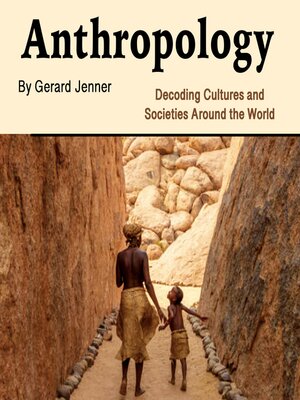Anthropology
audiobook (Unabridged) ∣ Decoding Cultures and Societies Around the World
By Gerard Jenner

Sign up to save your library
With an OverDrive account, you can save your favorite libraries for at-a-glance information about availability. Find out more about OverDrive accounts.
Find this title in Libby, the library reading app by OverDrive.



Search for a digital library with this title
Title found at these libraries:
| Library Name | Distance |
|---|---|
| Loading... |
This audiobook is narrated by a digital voice.
The limestone caves of Lascaux in southwestern France hold secrets painted on their walls seventeen thousand years ago, when anatomically modern humans used pigments made from ochre and charcoal to create images of horses, aurochs, and deer that reveal not merely artistic skill but sophisticated symbolic thinking that distinguished our species from all others that had walked the earth before us. These cave paintings represent a cognitive revolution that anthropologists continue to study for insights into how humans developed the capacity for abstract thought, symbolic communication, and cultural transmission that would eventually enable them to dominate every ecosystem on the planet.
The human story begins in Africa roughly seven million years ago with the earliest hominins who diverged from our common ancestor with chimpanzees, beginning a journey through evolutionary time that would see bipedalism emerge as the first distinctly human trait, followed millions of years later by larger brains, tool use, and eventually the language capacity that enabled culture to become the primary mechanism of human adaptation. The fossil record reveals a complex branching tree of human ancestors and relatives, from Australopithecus afarensis represented by the famous Lucy skeleton to the robust Paranthropus species that went extinct while our own lineage survived and eventually flourished.
Archaeological evidence from sites like Olduvai Gorge in Tanzania and Dmanisi in Georgia demonstrates how early humans developed increasingly sophisticated stone tool technologies that enabled them to process food more efficiently, hunt larger animals, and eventually migrate out of Africa to colonize new environments across the globe.







